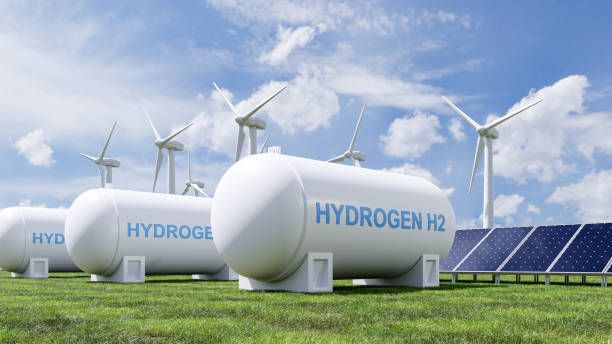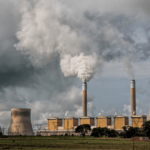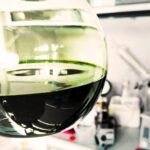The European Commission has approved, under EU State aid rules, a €220 million Spanish measure to support Cobra Instalaciones y Servicios, S.A. (‘COBRA’) in the production of renewable hydrogen, with the aim of promoting its use in industrials sectors. The measure contributes to the achievement of the EU Hydrogen Strategy and the European Green Deal targets, while helping reduce dependence on Russian fossil fuels and fast forward the green transition in line with the REPowerEU Plan.
The decision follows the approvals on 15 July 2022 and on 21 September 2022 of two Important Projects of Common European Interest (IPCEI ‘Hy2Tech’ and IPCEI ‘Hy2Use’) in the hydrogen value chain. COBRA’s project was selected by Spain in the context of an open call to form part of an IPCEI on hydrogen technologies and systems, which resulted in the two approved IPCEIs. However, given its characteristics and objectives, it was better suited for assessment under the Guidelines on State aid for climate, environmental protection and energy 2022. Executive Vice-President Margrethe Vestager, in charge of competition policy, said:
This €200 million measure enables Spain to support COBRA’s plans to establish new renewable hydrogen production capacities. This will contribute to reducing greenhouse gas emissions and further greening of the European industry.
The Spanish measure
Spain notified to the Commission its plan to support COBRA, which is not yet active in hydrogen production, start producing renewable hydrogen at large scale via water electrolysis (i.e. a process of using electricity to decompose water into oxygen and hydrogen gas). The renewable hydrogen produced will be used for external industrial off-takers, in particular in energy-intensive and hard-to-abate sectors as refineries and ceramics.
The aid, which will take the form of a direct grant, will support the construction and the installation of electrolysers in Spanish regions of Cartagena and Castellón. The two electrolysers will have a total capacity of 205 MW and are expected to produce approximately 8,550 tonnes of renewable hydrogen and 6,840 tonnes of oxygen per year. The electrolysers are envisaged to be constructed in stages, with the first electrolyser operating as of 2023.
Once completed, the project is expected to avoid the release of 47,038 tonnes of carbon dioxide annually. In addition, to maximise the reduction of greenhouse gas emissions, the generated hydrogen will be produced solely with electricity stemming from renewable sources.

Commission approves up to €5.4 billion of public support by fifteen Member States to boost hydrogen technology |
The Commission’s assessment
The Commission assessed the measure under EU State aid rules, in particular Article 107(3)(c) of the Treaty on the Functioning of the European Union (‘TFEU’), which enables Member States to support the development of certain economic activities subject to certain conditions, and the Guidelines on State aid for climate, environmental protection and energy 2022 (‘CEEAG’).
Spain selected COBRA’s project, in the context of an open call in 2021, to form part of an IPCEI on hydrogen technologies and systems. COBRA’s project intends to reduce greenhouse gas emissions by providing the generated renewable hydrogen to industrial customers, in particular in energy-intensive and hard-to-abate sectors such as refineries and ceramics. As aid for the reduction of greenhouse gas emissions, including through support of renewable energy, is one of the main categories of aid allowed by the CEEAG, the measure was best suited for assessment under these guidelines.
The Commission found that:
- The project is amongst the early adopters of an innovative technology in its sector.
- The measure facilitates the development of an economic activity, in particular the production of renewable hydrogen. At the same time, it supports the objectives of key EU policy initiatives such as the European Green Deal, the EU Hydrogen Strategy and the REPowerEU Plan.
- The aid has an ‘incentive effect’, as the beneficiary would not carry out the investments in renewable hydrogen without the public support.
- The measure has a limited impact on competition and trade within the EU. In particular, it is necessary and appropriate to ensure production of renewable hydrogen. In addition, it is proportionate, as the level of the aid corresponds to the effective financing needs. Furthermore, if the project turns out to be very successful, generating extra net revenues, the company will return part of the aid received to Spain (claw-back mechanism).
- The aid brings about positive effects that outweigh any potential distortion of competition and trade in the EU.
On this basis, the Commission approved the Spanish measure under EU State aid rules.
Background
The 2022 Guidelines on State aid for climate, environmental protection and energy (‘CEEAG’) provide guidance on how the Commission will assess the compatibility of aid measures for environmental protection, including climate protection, and energy which are subject to the notification requirement under Article 107(3)(c) TFEU.
The new guidelines, applicable as from January 2022, create a flexible, fit-for-purpose enabling framework to help Member States provide the necessary support to reach the Green Deal objectives in a targeted and cost-effective manner. The rules involve an alignment with the important EU’s objectives and targets set out in the European Green Deal and with other recent regulatory changes in the energy and environmental areas and cater for the increased importance of climate protection. They include sections on aid for reduction of greenhouse gas emissions including through support for renewable energy, energy efficiency measures, aid for clean mobility, infrastructure, circular economy, pollution reduction, protection and restoration of biodiversity, as well as measures to ensure security of energy supply, subject to certain conditions.
The 2022 CEEAG aim to help Member States meet the EU’s ambitious energy and climate targets at the least possible cost for taxpayers and without undue distortions of competition in the Single Market.
Source: EU Commission







Leave a Reply